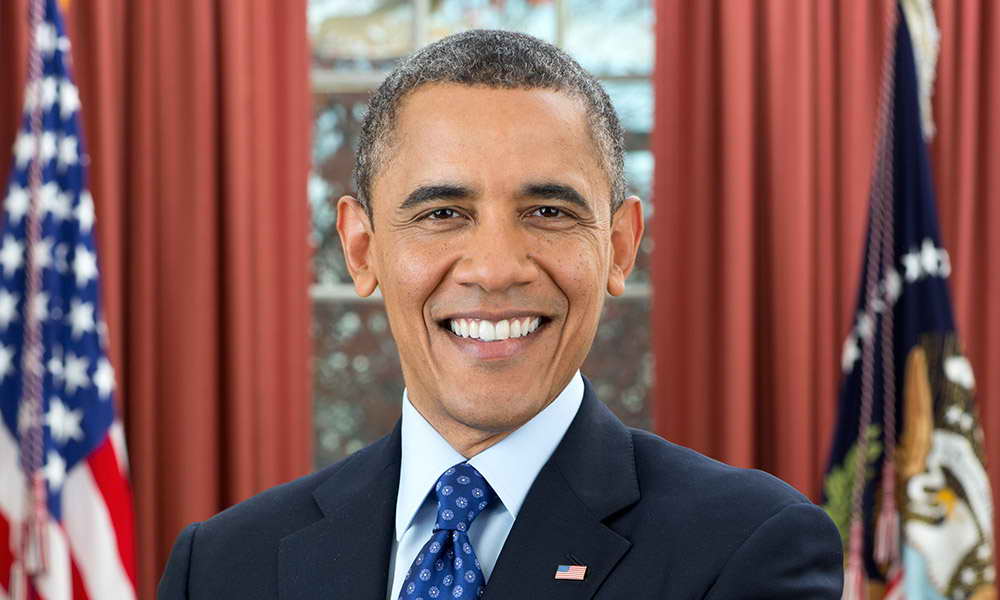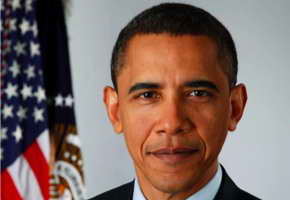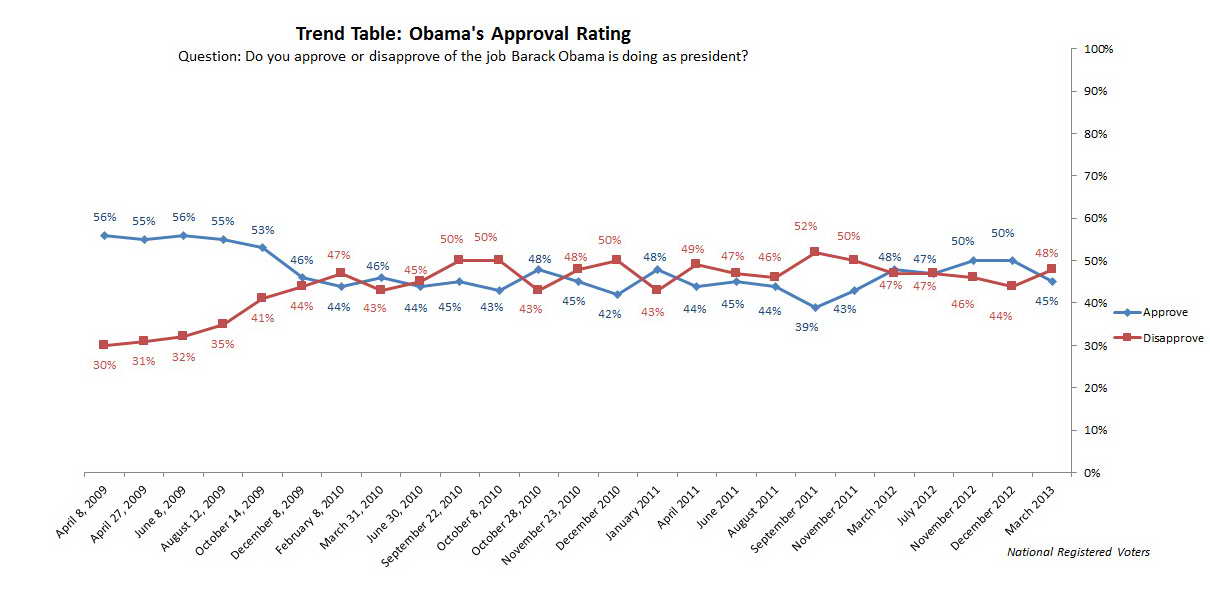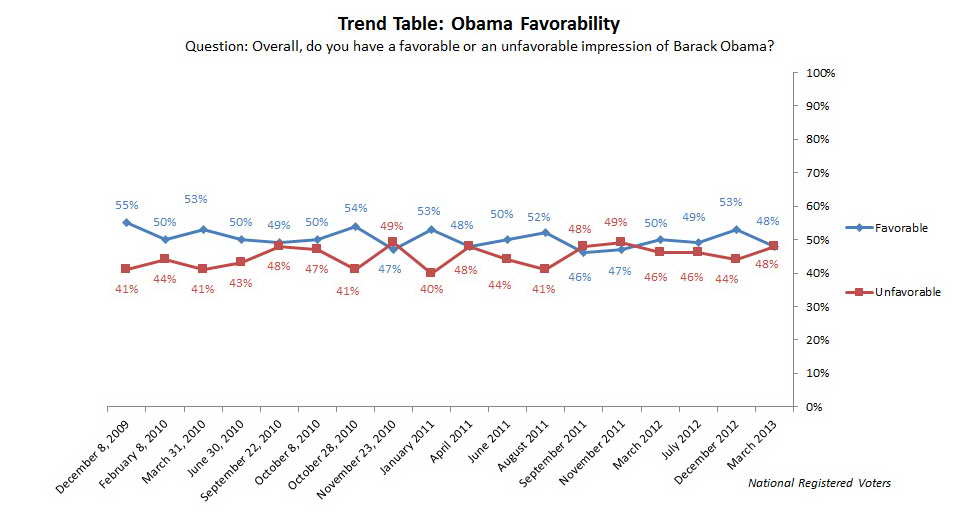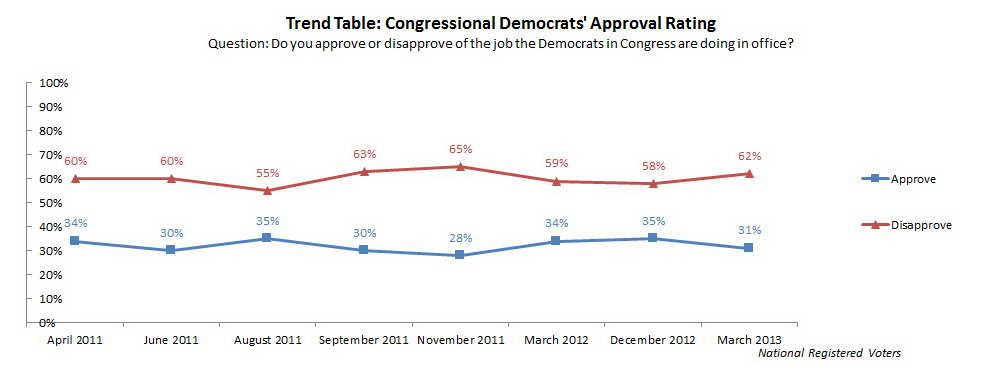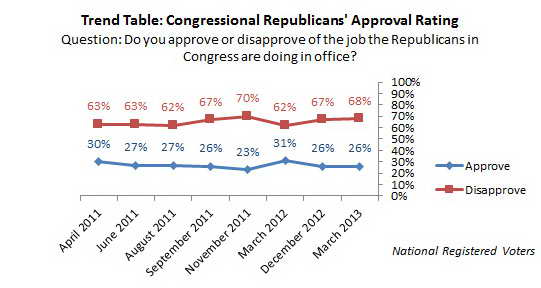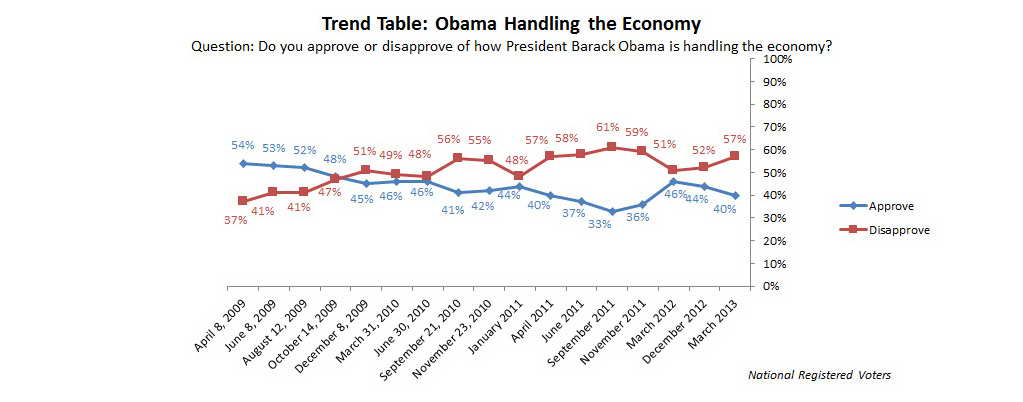March 12, 2013
3/12: Obama Approval Rating Drops…Plurality Blames GOP for Sequester
McClatchy/Marist National Poll
President Barack Obama’s approval rating has fallen to its lowest point in sixteen months. Currently, more registered voters nationally disapprove of the president’s job performance — 48% — than approve of how he is doing in office — 45%. Seven percent are unsure. This is the first time Mr. Obama’s approval rating has been upside down since November 2011 when 50% believed he fell short, and 43% gave the president high marks. Seven percent, at that time, were unsure.
Click Here for Complete March 12, 2013 USA McClatchy-Marist Poll Release and Tables
When McClatchy-Marist last reported this question in December 2012, half of voters — 50% — applauded the job the president was doing. 44% thought his performance was subpar, and 6% were unsure.
“The political wrangling in Washington has taken its toll on President Obama and hasn’t done Congress any good either,” says Dr. Lee M. Miringoff, Director of The Marist College Institute for Public Opinion.
While there has been some change in the president’s job performance rating among Democrats and Republicans, there has been more of a shift among independent voters. Just 37% of these voters approve of how the president is doing in office while a majority — 55% — disapprove. Eight percent are unsure. In December, 46% of independents approved of Mr. Obama’s performance, 45% disapproved, and 9% were unsure.
There has also been a decline in the president’s favorable rating. Here, voters evenly divide. 48% have a favorable impression of President Obama while the same proportion — 48% — has an unfavorable one. Four percent are unsure. In December, a majority — 53% — had a positive view of the president. 44% had an unfavorable opinion of him, and 3%, at that time, were unsure.
President Obama fares better in voters’ eyes than do Congressional Democrats and Republicans. Only 31% of registered voters nationally approve of how the Democrats in Congress are performing in office. More than six in ten — 62% — disapprove, and 7% are unsure. In McClatchy-Marist’s previous survey, 35% approved of the job of Congressional Democrats, 58% disapproved, and 7% were unsure.
Looking at Congressional Republicans, just 26% approve of their job performance. 68% disapprove, and 7% are unsure. In December, similar proportions of registered voters shared these views. 26% gave the Congressional GOP high marks, 67% disapproved, and 7% were unsure.
Table: President Obama Approval Rating
Table: President Obama Approval Rating (Over Time)
Table: President Obama Favorability
Table: President Obama Favorability (Over Time)
Table: Congressional Democrats’ Approval Rating
Table: Congressional Democrats’ Approval Rating (Over Time)
Table: Congressional Republicans’ Approval Rating
Table: Congressional Republicans’ Approval Rating (Over Time)
Republicans Take Brunt of Blame for Sequester…Nearly Half Expect Negative Impact on Economy
Eighty-five billion dollars in automatic spending cuts took effect when President Obama and Congressional Republicans failed to reach an agreement to avoid them. Who is more to blame? 46% of adults nationally point a finger at the Republicans. But, President Obama does not go unscathed. 36% of adults think the president is at fault. 12% of Americans say both are to blame while 7% report neither is to blame or are unsure. Similar proportions of registered voters have these opinions.
When it comes to the effect of the sequester on the economy, 47% of residents believe there will be a negative impact while only 19% say there will be a positive one. More than one in four — 27% — think there will be no effect on the economy, and 7% are unsure. Here, too, similar proportions of registered voters share these views.
But, what about the personal toll of sequestration? Nearly half of adults nationally — 48% — don’t think their family will feel any difference. 39% believe they will be adversely affected while 10% say they will benefit from the experience. Three percent are unsure. Nearly identical proportions of registered voters agree.
Table: Who is to Blame for Sequester?
Table: Impact of Sequester on Economy
Table: Personal Impact of Sequester
Majority Favors Divided Government…Compromise is a Must, Say More Than Seven in Ten
55% of residents nationally think it is better if the president and the majority who controls Congress are from different political parties. 35% say it would be advantageous if they were from the same party, and 10% are unsure. Registered voters share these views.
For more than seven in ten adults nationally, compromise is the key. 71% believe it is more important for government officials to compromise to find a solution. However, 24% think it is better if politicians stand on principle even if it means gridlock. Five percent are unsure.
When McClatchy-Marist last reported this question in December, 74% of adults thought it was more important to compromise. 21% said an official’s principles should not be forsaken, and 5% were unsure.
When Washington comes to a political standstill, who do registered voters blame for the gridlock? 45% say the Republicans in Congress are culpable. 37% blame President Obama while 12% say both are at fault. Six percent say neither are to blame or are unsure.
Table: Views on Divided Government
Table: Better to Compromise to Find Solutions or Stand on Principle?
Table: Cause of Gridlock in Washington
The Great Deficit Divide
When it comes to closing the federal budget deficit, registered voters divide. 44% think Congressional Republicans have the better approach to deficit reduction. 42%, however, believe President Obama has the better plan. Seven percent think neither has the better approach while 2% report both are adept at handling the situation. Six percent are unsure.
To close the federal budget deficit, a majority of voters nationally — 53% — prefer lawmakers cut programs and services than increase taxes and fees — 37%.
However, when asked about specific policy areas, there are several notable exceptions.
- Almost two-thirds of registered voters — 65% — would rather increase revenues such as taxes and fees than experience cuts to education spending — 31%. Four percent are unsure.
- Six in ten registered voters — 60% — would prefer to increase taxes and fees than cut Social Security spending — 33%. Seven percent are unsure.
- 57% would prefer increasing revenues than reduce spending for Medicare — 36%. Seven percent are unsure.
- A majority of registered voters — 53% — would rather increase revenues such as taxes and fees than cut transportation spending — 40%. Seven percent are unsure.
- Half — 50% — would prefer to increase taxes and fees than cut Medicaid spending — 42%. Eight percent are unsure.
- However, nearly six in ten voters — 57% — would rather cut energy spending than increase revenues — 35%. Eight percent are unsure.
- 55% would prefer cuts in unemployment assistance over increases in taxes and fees — 38%. Seven percent are unsure.
- A majority — 53% — would rather have defense spending cut than experience higher taxes or fees — 39%. Seven percent are unsure.
Table: Increase Taxes and Fees or Cut Programs and Services
Table: Increase Revenues or Cut Education Spending
Table: Increase Revenues or Cut Social Security Spending
Table: Increase Revenues or Cut Medicare Spending
Table: Increase Revenues or Cut Transportation Spending
Table: Increase Revenues or Cut Medicaid Spending
Table: Increase Revenues or Cut Energy Spending
Table: Increase Revenues or Cut Unemployment Assistance
Table: Increase Revenues or Cut Defense Spending
Dip in Those Who Approve of Obama’s Handling of the Economy
When it comes to the economy, in general, 40% of registered voters approve of how President Barack Obama is handling it. Nearly six in ten — 57% — disapprove. Four percent are unsure.
This marks a decline from when McClatchy-Marist last reported this question in December. At that time, 44% of voters gave Obama a thumbs-up on his fiscal management, 52% disapproved, and 4% were unsure.
Do Americans think the nation is in a recession? 63% of adults nationally do while 33% do not. Four percent are unsure. Little has changed on this question since McClatchy-Marist reported it last March when 66% thought the country was in a recession. 30% disagreed, and 4% were unsure.
Table: President Obama’s Handling of the Economy
Table: President Obama’s Handling of the Economy (Over Time)
Table: U.S. in a Recession Over Time
On the Personal Side…More Americans See Finances on Decline than a Year Ago
Nearly half of Americans — 48% — believe their personal family finances in the coming year will remain about the same. 26% believe their financial picture will get better while the same proportion — 26% — think it will get worse.
The proportion of residents who think their personal finances will deteriorate has grown. Last March, 14% thought their family finances would get worse. 32%, at the time, believed they would get better while a majority — 55% — said they would stay about the same.
When it comes to whether or not adults nationally will feel economically better off in the coming year, one in four — 25% — believe they will while 36% say they will be worse off. 40% think they will be about the same economically. There has been little change on this question since December 2012 when 27% reported they would be better off, 32% thought they would be worse off, and 40% said they would feel no differently.
Table: Your Personal Family Finances – Better, Worse, or the Same?
Table: Your Personal Family Finances – Better, Worse, or the Same? (Over Time)
Table: Economically Better Off in the Next Year?
More View Nation as Headed in the Wrong Direction
What does all of this mean for the trajectory of the nation? Six in ten Americans — 60% — believe the country is moving in the wrong direction while 35% say it is traveling in the right one. Five percent are unsure.
When McClatchy-Marist last reported this question in December, 55% of adults nationally thought the country was on the wrong path. 40% said it was on the correct one, and 5% were unsure.
Table: Right or Wrong Direction of the Country
Table: Right or Wrong Direction of the Country (Over Time)
Michelle Obama Consistently Scores High with American Voters
President Obama may want to take a few lessons from his wife. When it comes to Michelle Obama’s favorable rating, 63% of voters have a positive impression of her. 26% have an unfavorable one, and 11% are unsure.
In McClatchy-Marist’s survey last April, 65% thought highly of Mrs. Obama while 23% had a negative view of her. 12%, at that time, were unsure. Since December 2009, more than six in ten registered voters nationally have given Mrs. Obama high marks.
Table: Michelle Obama Favorability

